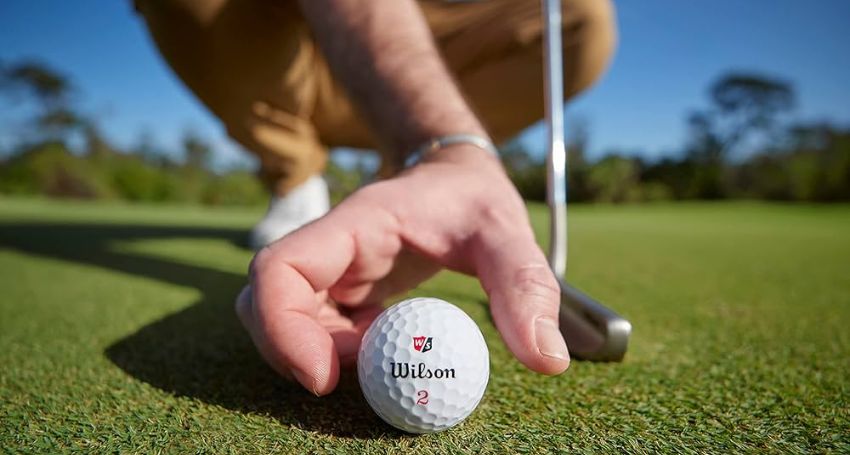Soft golf balls are designed to enhance control and feel, making them a popular choice for many golfers, especially those with slower swing speeds. This article dives deep into what soft golf balls are, their benefits, and how they differ from other types of golf balls. Whether you’re a beginner or an experienced player, understanding low-compression balls can help you make an informed decision that suits your game.
What Are Soft Golf Balls?
Soft golf balls have a lower compression rating, which means they are designed to compress more when hit. This softness allows for greater feel and control, particularly in the short game. Low-compression golf balls typically have a softer outer cover and a low-compression core, which helps generate more distance for players with slower swing speeds.
By providing a soft feel, these balls allow golfers to experience better feedback when making contact, which is crucial for improving their short game and overall performance on the greens.
Soft Golf Balls Vs. Hard Golf Balls
The main difference between soft and hard golf balls is the compression rating. Soft golf balls have a low compression rating, making them compress more easily upon impact. This results in a softer feel and greater control, which is particularly advantageous for shots around the greens.
In contrast, hard golf balls have a higher compression rating and are suited for players with faster swing speeds. These balls offer less feel but may provide more distance for those who can compress them effectively. Understanding these differences is essential when deciding whether a soft golf ball is right for your game.
Read More: Why do Hard Balls have Dimples
What Is Compression in Soft Golf Balls?
Compression refers to how much the golf ball deforms when struck. Soft golf balls have low compression, meaning they compress more, creating a soft feel that benefits players with slower swing speeds. The low-compression design of soft golf balls allows for better energy transfer at slower speeds, translating into more distance.
Low compression also enhances the feel around the greens, making it easier for players to control their short shots. A golf ball with a lower compression rating is ideal for those seeking a softer feel without sacrificing distance.
Who Should Use Soft Golf Ball
Soft golf balls are particularly suitable for players with slower swing speeds, such as beginners, seniors, or those who prefer a softer feel. A soft golf ball can help you achieve more distance and control if you struggle to generate high swing speeds.
Additionally, players who prioritize feeling around the greens will benefit from these balls’ soft touch. The enhanced feedback and control allow for more precise shots, which can significantly improve short-game performance.
Benefits of Soft Golf Balls
Soft golf balls offer several advantages, including:
- Enhanced Control and Feel: Soft golf balls provide a great feel around the greens, helping players achieve better accuracy in their short game.
- Distance for Slower Swing Speeds: Soft golf balls’ low compression allows players with slower swing speeds to gain more distance with minimal effort.
- Improved Feedback: The soft feel of these golf balls provides valuable feedback, helping golfers refine their techniques and improve their performance.
Impact Of Swing Speed
Swing speed is critical in determining whether a soft golf ball suits you. Players with slower swing speeds benefit the most from soft golf balls because their low compression allows maximum distance and optimal performance even without a powerful swing.
For players with moderate to slow swing speeds, using a soft golf ball helps improve the ball’s flight and provides a softer feel, making it easier to control shots and maintain accuracy.
How to Choose the Best Soft Golf Ball
When choosing a soft golf ball, consider your swing speed and preferred feel. If you have a slower swing speed, look for low-compression golf balls specifically designed to maximize distance and provide a soft feel. Additionally, the outer cover material should be examined; some premium soft golf balls offer additional control and durability.
Brands like Titleist Tour Soft or Wilson Duo Soft are great options for enhancing their game with a soft feel and optimal performance.
Common Myths
There are several misconceptions about soft golf balls, including:
- Myth 1: Soft golf balls are only for beginners.
While soft golf balls can greatly benefit beginners, many experienced players also prefer them for their enhanced feel and control. - Myth 2: Soft golf balls don’t provide distance.
On the contrary, soft golf balls with low compression are designed to maximize distance for players with slower swing speeds, making them a powerful option for many golfers.
Understanding these myths helps you make an informed decision and choose a golf ball that truly complements your playing style.
Top Soft Golf Balls on the Market
Here are some of the best soft golf balls available:
- Titleist Tour Soft: Known for its soft feel and excellent control, Titleist golf balls are perfect for players seeking precision around the greens.
- Wilson Duo Soft: This is one of the softest golf balls on the market. It offers a low compression rating and improved distance for players with slower swing speeds.
- Srixon Soft Feel: This golf ball is designed to balance distance and control, making it ideal for golfers looking to improve their short game.
Each option offers a soft feel and performance benefits, allowing you to find the right ball for your game.
FAQs
- Q: What is the best soft golf ball for beginners?
A: Beginners typically benefit from low-compression options like the Wilson Duo Soft, as they offer the right balance of distance and control. - Q: Can experienced players use soft golf balls?
A: Yes, many experienced players prefer soft golf balls for the enhanced feel and feedback they provide, which is crucial for precision shots. - Q: Are soft golf balls suitable for long-distance shots?
A: Soft golf balls are designed to provide distance for players with slower swing speeds, so they can be effective for long-distance shots if you have the right swing speed.





























































